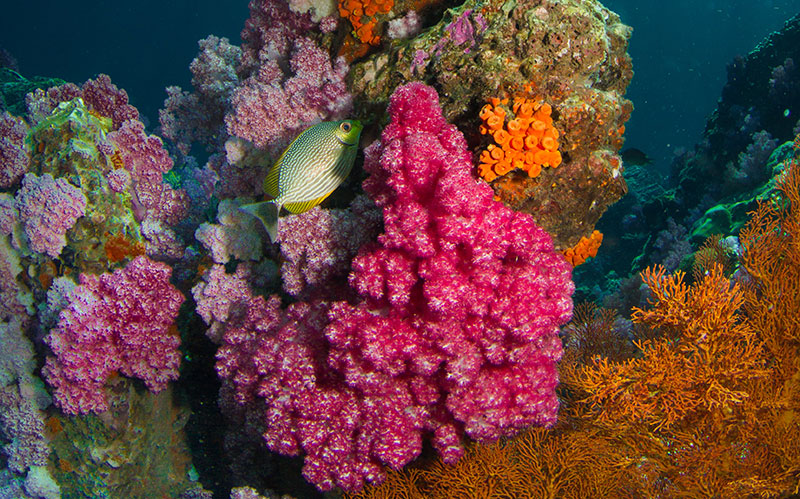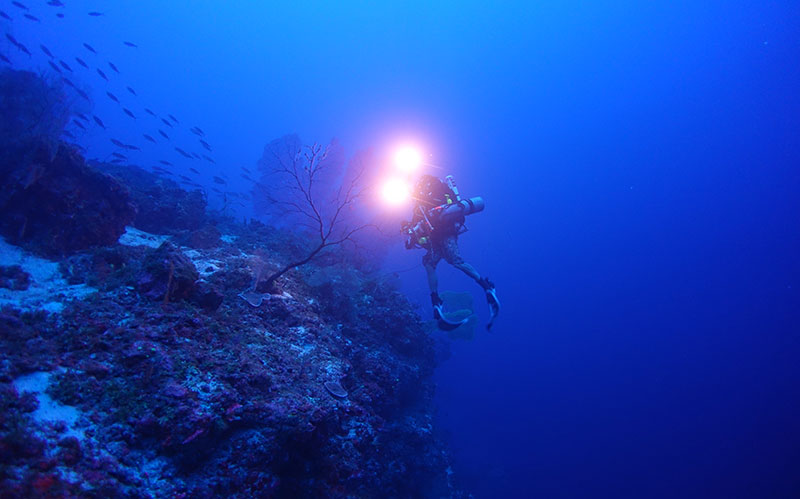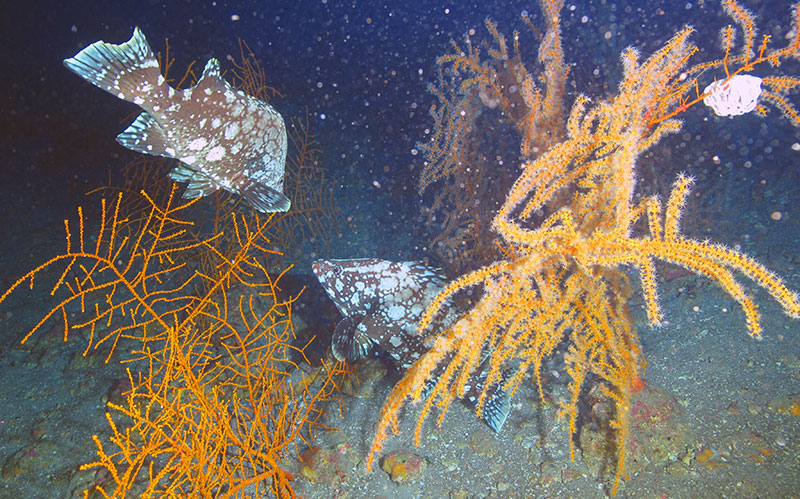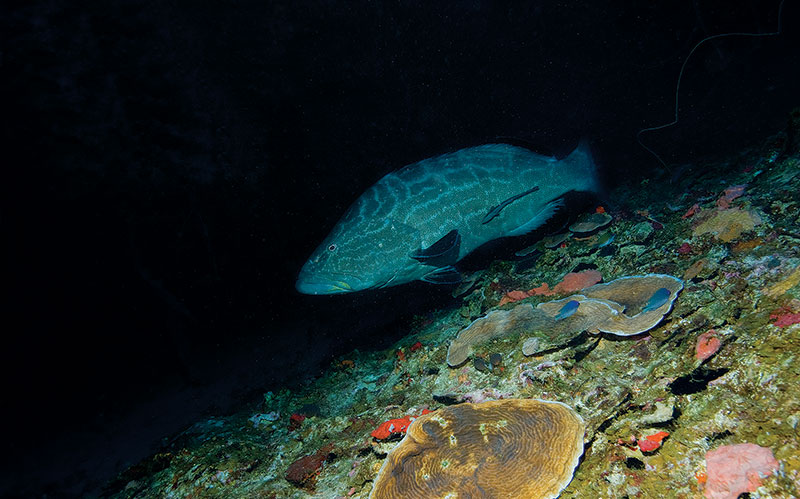Coral Ecosystems
NCCOS research helps shed light on corals and their understudied communities, restoration science, the ecological role they play, and their potential to help replenish degraded reef populations. NCCOS coral research activities include mapping, habitat characterization, developing predictive habitat maps, damage assessment, and investigation of coral ecosystem connectivity between shallow, mesophotic, and deep-sea depths.
Areas of Focus
Coral Ecosystems: Diverse Communities Under Threat
As the documented decline of coral reefs continues, it is important to understand the value and role of coral ecosystems. Not only do many coral ecosystems share common marine life, but they also serve as essential fish habitat for economically and ecologically important species.
Unique and Diverse Communities
Fish and benthic communities within coral ecosystems are diverse. For example, the dominance of Hawaiian endemic fish species in mesophotic habitats is an important biodiversity consideration and should be taken into account in the management of commercial and recreational removals of fish including for the aquarium trade.
Vulnerable Ecosystems Under Threat
Diseases and diminishing health conditions among corals have dramatically increased in frequency and distribution over the last decade, leading to unprecedented decreases in live coral and altering the function and productivity of coral reef ecosystems. Scientific evidence now clearly indicates that due to rising temperatures from climate change, mass coral bleaching events and infectious disease outbreaks are becoming more frequent.
Societal Value
Healthy coral reefs support commercial and subsistence fisheries as well as jobs and businesses through tourism and recreation. Local economies receive billions of dollars from visitors to reefs through diving tours, recreational fishing trips, hotels, restaurants, and other businesses based near reef ecosystems. Coral reef structures also buffer shorelines against 97 percent of the energy from waves, storms, and floods, helping to prevent erosion and the loss of life and property.
NOAA Coral Disease & Health Consortium
The Coral Disease and Health Consortium is a network of field and laboratory scientists, coral reef managers, and agency representatives devoted to understanding coral health and disease. It is extensive, highly collaborative, and completely voluntary with over 150 partners currently. The consortium’s mission is to understand and address the effects of natural and anthropogenic stressors on corals in order to contribute to the preservation and protection of coral reef ecosystems.
Featured Stories






